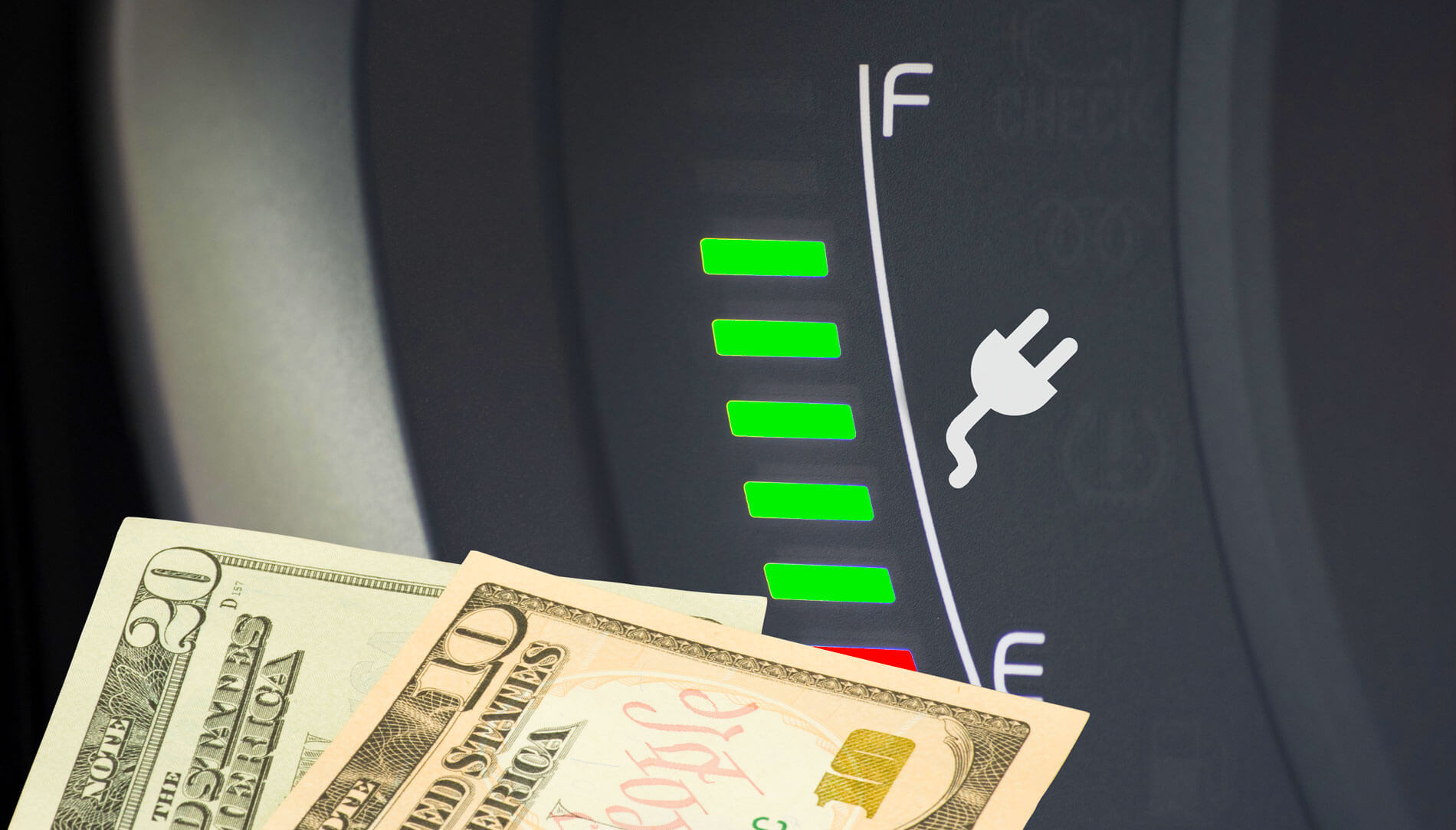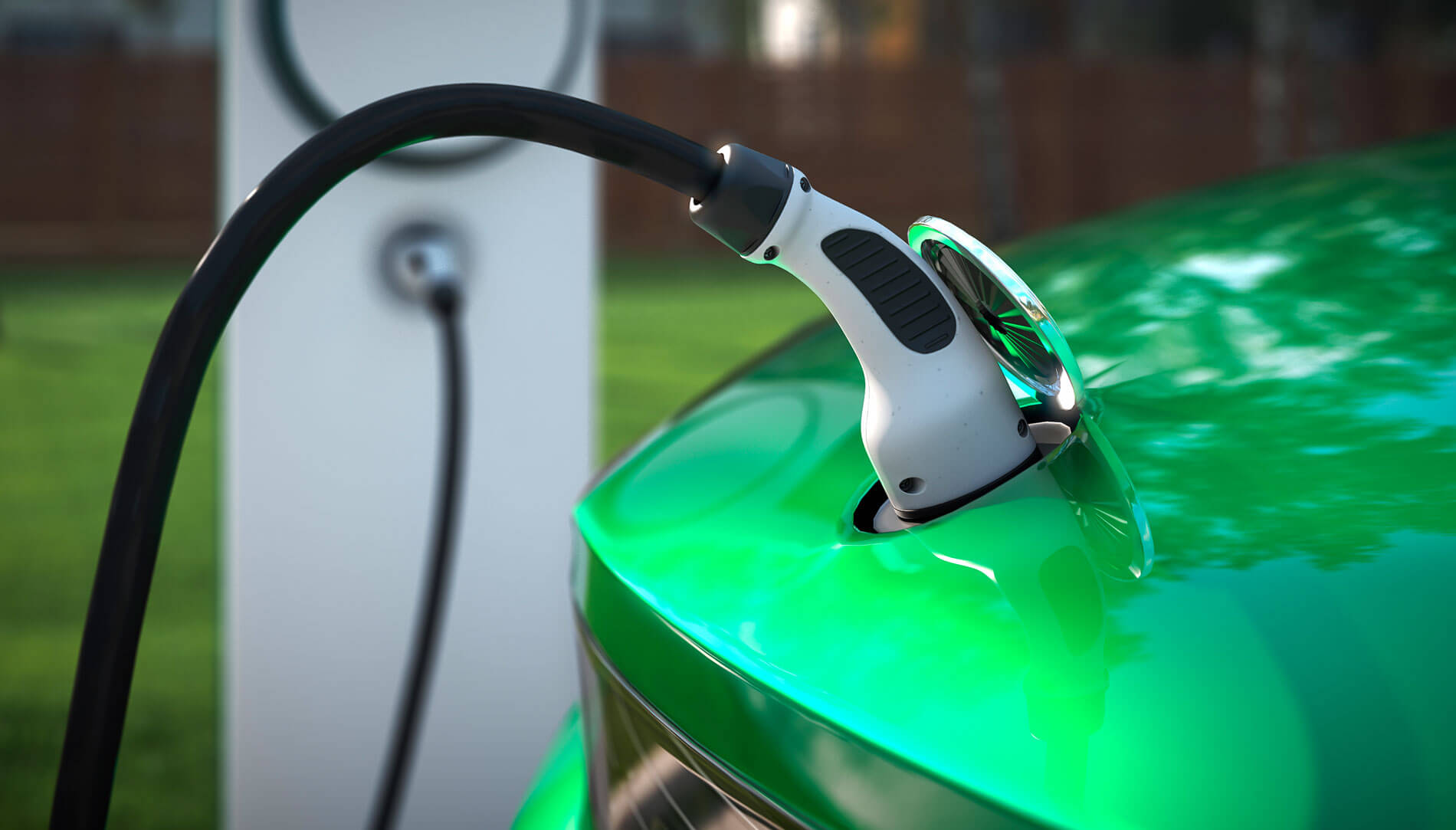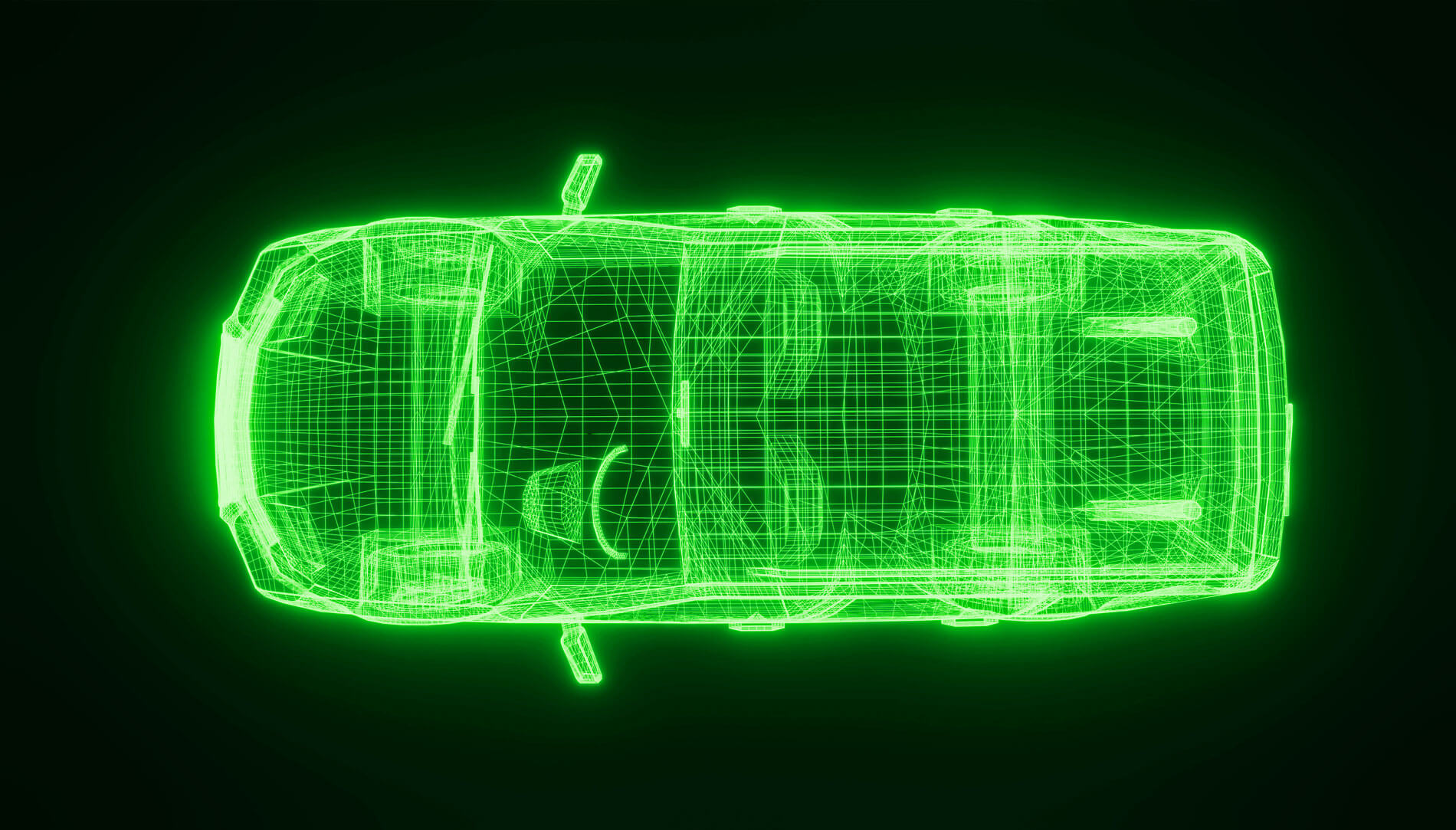From tires to batteries, electric cars also need regular maintenance
An electric car is a simpler machine than a conventional car. Nothing is “combusting” under the hood to make the car move. Electric cars have no tailpipes or exhaust systems either. Most electric cars have a simple transmission with a single gear. That means that electric car repairs are few and far between—compared to gas powered cars. Here’s what drivers need to know about electric car maintenance.
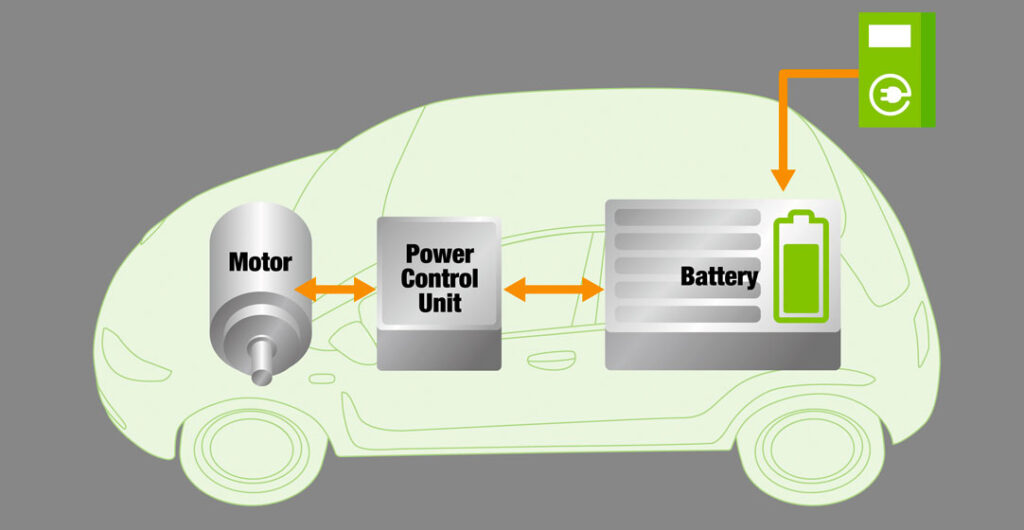
30,000 versus 15,000 car parts: A Tale of Two Cars
The standard electric car contains about half as many parts as the 30,000 or more found in the typical conventional car, and most standard electric cars have fewer than 20 replaceable parts in the engine as compared to about 200 in combustion engines. An electric car’s main components are a large battery pack, an electric motor, a cooling system, a power charging port and converter. So, owners can look forward to fewer trips to the mechanic.
That said, an electric car (like any vehicle) needs to be maintained to run properly and avoid problems. If a major component on any type of car does break down, repairs can be pricey. So, it is worth looking at car maintenance issues carefully.
Routine electric car maintenance
You won’t have to get oil changes, replace spark plugs, etc., but you can expect to take your electric car into the shop for scheduled maintenance every year. Here’s what your maintenance may include:
Alignment
Electric cars tend to be much heavier than conventional cars, so it is especially important to keep the car in alignment. The wheel bearings and suspension need to be checked once a year to maintain a smooth ride and property handling.
Tire rotation
An electric car’s heavy weight and rapid acceleration also causes more wear on the tires. Tires need to be rotated annually.
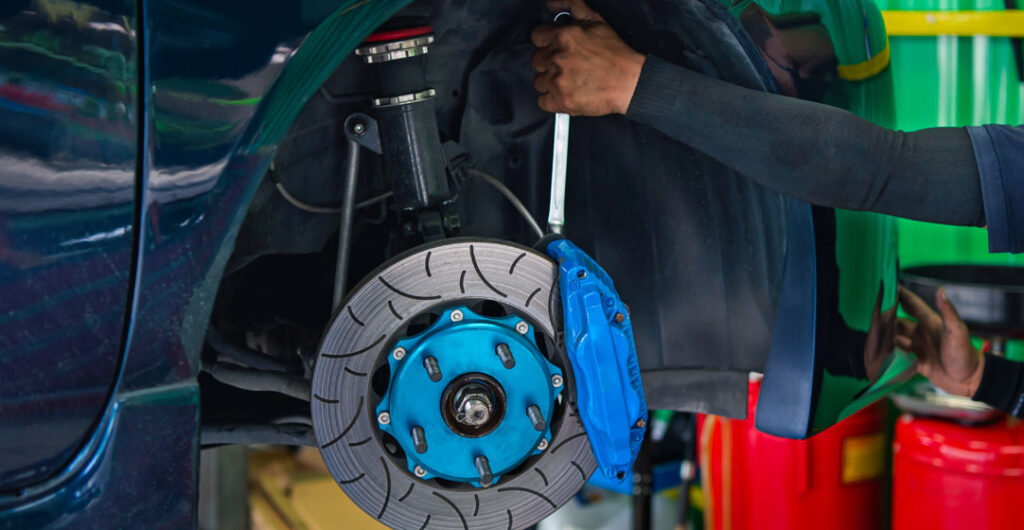
Brakes
When you get your tires rotated, you’ll also typically have the brakes checked and the brake calipers cleaned and lubricated. Every two to five years, the brake fluid should be replaced.
The good news is that electric car brakes should last much longer than the brakes on a conventional car. An electric car’s regenerative braking system more efficiently slows or stops the car while recapturing energy and charging the battery. This puts less pressure on the brake’s hardware. However, as with all cars, the brakes eventually will wear out with usage.
Battery
Just like conventional cars, most electric cars have a 12-volt battery that powers auxiliary systems, such as the navigation system or door locks. This battery will eventually have to be replaced.
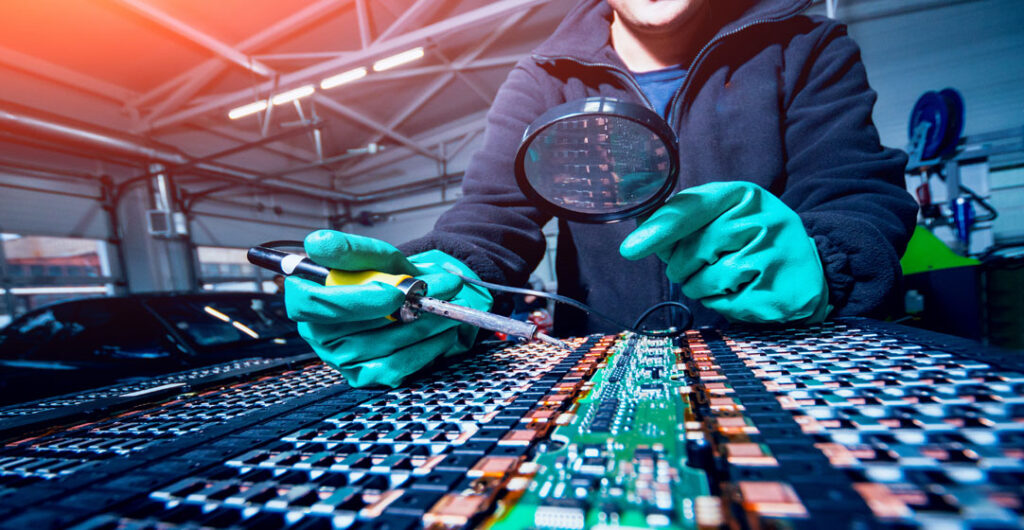
Windshield Wipers and Air Filters
All drivers will be familiar with this task: changing the windshield wipers and replacing the cabin air filter. These jobs can be done fairly easily at home.
Routine electric car repairs
Replacing an electric car battery
So far, we have talked about routine maintenance, but it is worth looking at some of the major components of an electric car, starting with its battery.
Electric car battery packs are large and can cost several thousand dollars to replace, but you shouldn’t have to worry about that for quite some time, if ever. Most batteries come with a separate factory warranty of eight to 10 years, or 100,000 to 150,000 miles. However, the batteries are designed to last longer than that, from 15 to 20 years, or more.
All batteries will degrade over time, though. As the battery ages, the car will gradually lose range, or the mileage you can travel on one complete charge. The batteries can degrade more quickly under stress. This is something used car shoppers consider when a car is more than a decade old.
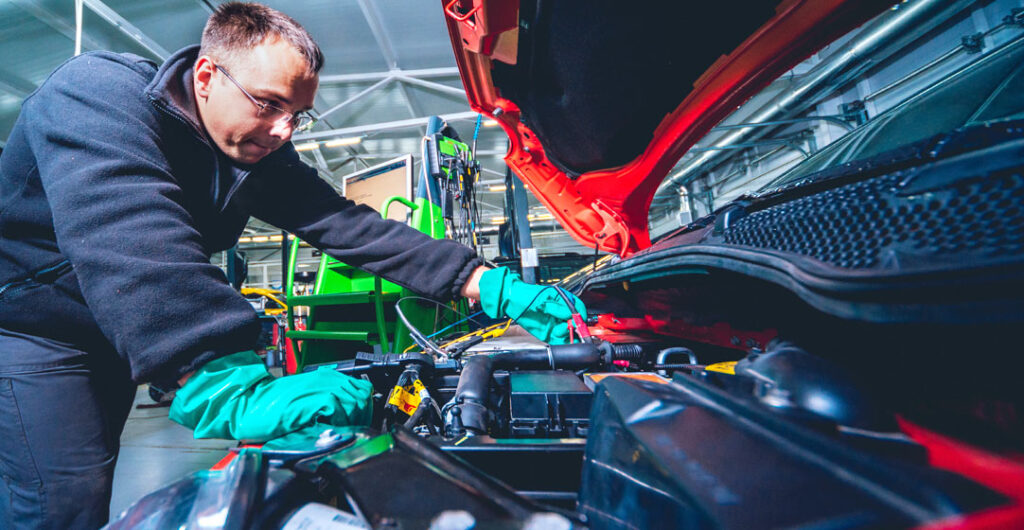
Car batteries don’t like excessive heat or extreme cold — it’s the same for gas-powered and electric car batteries. For example, electric car batteries will degrade more quickly if driven or left parked regularly in extremely hot weather. It is recommended to park the cars in the shade.
Also, batteries have a charging sweet spot in the range of 20% to 80% capacity. Running the battery down completely and charging to 100% capacity puts extra stress on the battery. It is also not recommended to charge the battery with DC fast charging routinely. Fast charging, which sends a DC current directly to the battery, puts more stress on the battery with heat buildup.
In many of these respects, your battery is a lot like the battery on your laptop or cell phone. It naturally degrades over time but, when overly stressed, it more quickly loses the capacity to hold a charge and eventually stops working altogether.
If the battery does die, the replacement cost can be significant as the battery often represents a third of the value of the car. For mid-range electric cars, a new battery can run from $5,000 to $10,000. The battery replacement on higher-end models can be as high as $25,000 or more. One piece of good news is that battery prices are falling. So, owners may find battery replacements much more affordable in a few years.
Installing a new electric motor
The electric motor is another component that costs several thousand dollars to replace. Like with a battery, electric motors should last 15 to 20 years if the vehicle is properly maintained.
Several factors can cause an electric car motor to fail or deteriorate over time. Dust and dirt can get into the engine components and wear down the engine. Overheating, misalignment, vibration, corrosion and excessive amounts of current flow can also damage the motor. Generally, though, an electric motor should never need to be replaced.
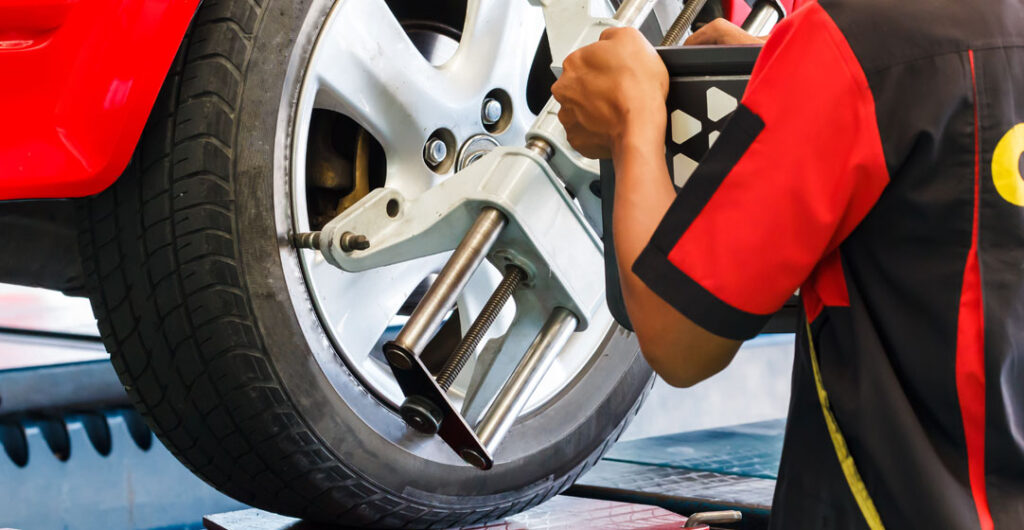
Replacing the tires on your electric car
Electric cars are heavier than standard conventional cars, weighing on average as much as 750 pounds more than a standard vehicle. They are also known for their quick acceleration, which is great for the ride, but also wears out tires. You can expect to replace your tires at least as often as you do with a gas-powered car.
Even with frequent tire rotations, no tire lasts forever, and these tires still will likely have to be replaced sometime after 30,000 miles. It’s something to keep in mind as you plan ahead for routine maintenance.
Electric car repairs and your local mechanic
Electric car owners, for the time being, have fewer repair options outside cities and larger towns. Even though more mechanics are getting trained and certified to work on specific models by the year, your family’s longtime mechanic might not be qualified to work on your electric car.
Should you break down, you’ll likely have to get referrals from the dealership where you bought the vehicle or use the dealer’s certified mechanics on staff. As the electric car industry matures, more mechanics will naturally get the training and be available. And, with considerably fewer car parts than gas-powered cars, you’re less likely to be visiting the mechanic in your electric car.
—Written by Victor Whitman
—Top photo: Sashkin and Milan/AdobeStock


